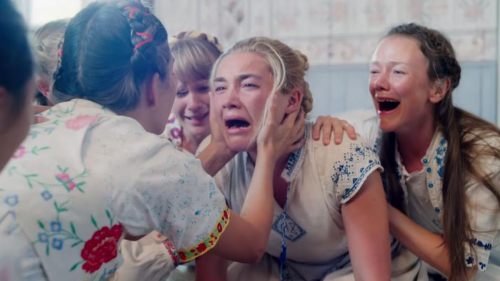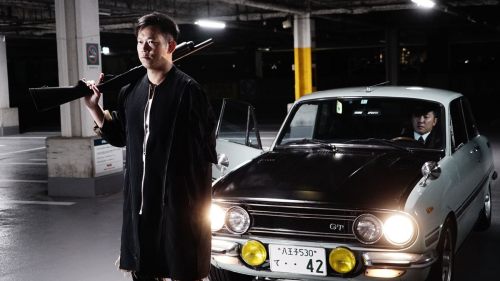Fantastic Fest Review: SWALLOW Uniquely Explores Society’s Treatment Of Women
Keeping up appearances is a full-time job for the newly married Hunter in Carlo Mirabella-Davis’ unusual and aesthetically beautiful Swallow. Under pressure from her controlling husband and wealthy in-laws to maintain a certain level of perfection domestically, the discovery that she’s pregnant only intensifies their control over her every move. When the oppressive environment becomes too much for the soft-spoken and submissive housewife to handle, she develops a rare eating disorder known as pica in which the compulsion to consume random and increasingly dangerous household objects helps her to regain some sense of autonomy.
What’s most surprising about the film is the deeply feminist perspective male writer/director Mirabella-Davis brings to the narrative, focusing his empathetic lens on the negative impact of the restrictive and unrealistic expectations women face in our society. Set in modern-day with a throwback to the fifties, production designer Erin Magill (Mad Men) and costume designer Liene Dobraja gorgeously convey the emotional conflict within the character in this idyllic yet stifled environment by dressing Hunter and her surroundings in the colorful threads of an antiquated past. Trapping her in the role of the picture-perfect ‘50s housewife, nothing can go wrong as long as she does what she’s told.
The slight, unusual premise is carried by the lovely Haley Bennett as Hunter. She easily earns our affection and laughs with her endearingly vacant personality. As her proclivity for swallowing items goes from something as small as a marble to larger and more harmful objects, she slowly begins to fight against the rules and regulations of her husband Richie (Austin Stowell), and his overbearing parents played by Elizabeth Marvel and David Rasche. When her rebellion leads them to hire live-in nurse, Luay (Laith Nakli), to watch her every move, the fact that she’s a prisoner not only in her own home but in her own body worsens her condition. As therapy leads Hunter to confront a psychological trauma from the past – resulting in a powerful scene between Bennett and the always excellent Denis O’Hare – her journey and transformation invite commentary on the dangers of ever judging another person’s life based solely on appearances.
In his first feature, Carlo Mirabella-Davis has created a unique world, combining past and present to explore how things have and, more importantly, haven’t changed in regard to society’s treatment of women. His profound final shot asks the audience to stop and consider that this could be any woman’s story, reminding us that we can never know the intricate details of another person's life. Beautifully crafted and performed, echoes of Marilyn Monroe and Alfred Hitchcock linger in Bennett’s gentle portrayal of Hunter and Mirabella-Davis’ inventive structure of a place hovering just outside our own daily lives with all the same adversities. He and Bennett are talents to watch out for from now on.



